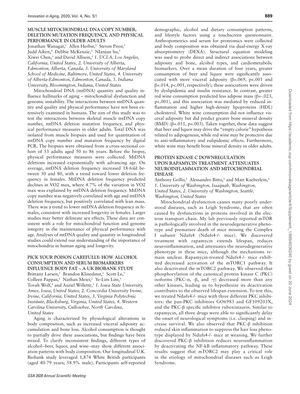Protein Kinase C Downregulation Upon Rapamycin Treatment Attenuates Neuroinflammation and Mitochondrial Disease
December 2020
in “
Innovation in aging
”

TLDR Rapamycin treatment helps reduce brain inflammation and symptoms of mitochondrial disease by blocking specific pathways in mice.
In the study from December 2020, researchers found that rapamycin treatment in mice with a mitochondrial disease model (Ndufs4-/- mice) led to extended lifespan, reduced neuroinflammation, and attenuated neurodegenerative symptoms by deactivating both mTORC1 and mTORC2 pathways. They observed a significant decrease in the phosphorylation of protein kinase C (PKC) isoforms, particularly PKC-β, and hypothesized that its deactivation might contribute to the beneficial effects. Testing this hypothesis, they treated the mice with three PKC inhibitors (GO6983, GF109203X, and ruboxistaurin), which all delayed neurological symptoms and increased survival, similar to rapamycin. Notably, PKC-β inhibition also reduced skin inflammation and suppressed hair loss in the mice. The inhibition of PKC-β was found to reduce neuroinflammation by deactivating the NF-kB inflammatory pathway, suggesting that mTORC2 and PKC-β play critical roles in the pathology of mitochondrial diseases like Leigh Syndrome.

